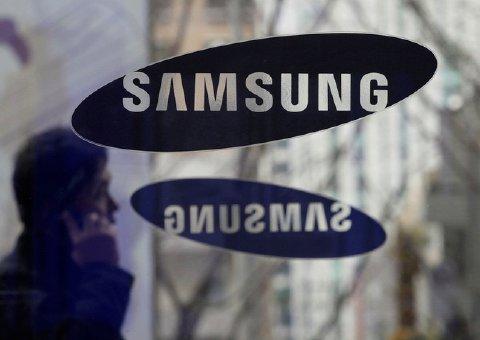SAN FRANCISCO — Samsung is decking out its wearable devices with the latest trend in tech: artificial intelligence.
The South Korean electronics giant this month revealed that both its first premium smartwatch and a smart ring, signaling its entry into a niche market, will be equipped with AI features that should help monitor and manage people’s health.
The $650 Galaxy Watch Ultra and $400 Galaxy Ring are both extensions of the AI focus Samsung put into its first smartphones six months ago, and the high-end smartwatches are twice the price of Samsung’s latest standard model, the $300 Galaxy Watch 7.
The trend of embedding AI in the devices that matter to people’s lives is accelerating: The technology is already in smartphones made by Samsung’s rivals Google and Apple, and in the latest PCs running Microsoft’s Windows software.
The AI in Samsung’s new luxury watches and rings is focused on improving and maintaining personal health, the primary reason most people buy wearable technology.
Both Samsung’s watch and ring use AI to analyse biometric data collected from the wearer and provide a customised assessment of their health via an “energy score” on a scale of 1 to 100, and even offer advice like a virtual fitness coach.
Like Apple plans to do with its AI services, Samsung’s new wearables will collect the most sensitive information on the device itself. But some data will still be processed in a remote computing center with a “defense-grade, multi-layered security platform” that Samsung likens to a virtual Fort Knox. That reflects Apple’s pledge to lock away any personal information that needs to be processed off-device in a digital fortress. But those promises don’t guarantee there won’t be security breaches or other failures that unintentionally expose personal information.
Samsung’s premium smartphone is the more advanced of the company’s latest wearable devices and can do some things the Galaxy Ring can’t, like alert you to sleep apnea, but the Ring needs to be charged less frequently and has a battery that can last six to seven days before needing to be recharged.
But smartwatches are also a much more competitive market, currently led by Apple, which has been focusing on health features since entering the market a decade ago, with more than 60 million people already using the Samsung Health app that works with its smartwatches.
Health benefits associated with wearable technology are encouraging more people to buy smartwatches, and research firm Gartner predicts that global sales of the devices will approach $29 billion this year. That means roughly 164 million new smartwatches will be strapped to wrists this year, with Gartner predicting annual sales will rise to 195 million by 2028.
While Samsung doesn’t face much competition for now, it’s likely to face further challenges in the smart ring market, a sector that has so far been shaped by startups like Oura and RingConn, but which have so far failed to make a big impact.
In a recent overview of the wearable technology market, Gartner said, “Smart rings are still an emerging category with no exclusive use cases and are unlikely to grow beyond a niche market through 2028.”
The company expects the smaller segment, which includes smart rings, to generate $2.4 billion in sales this year, eventually growing to about $4.6 billion in 2028.
Samsung’s Galaxy Ring comes in nine different sizes, but it only runs on Google’s Android operating system, making it unavailable to most affluent iPhone-owning consumers interested in trying new tech like the Galaxy Ring.
Samsung is also trying its latest move to get more people to buy its foldable smartphones, which have two display screens that hinge together to form a pseudo-tablet. It’s a concept Samsung has been pushing since 2019 with little success, but the company continues to update its devices with cameras and AI features to satisfy a niche market. The next-generation model, the Galaxy Z Fold 6, will sell for $1,900.
Meanwhile, South Korean labor union members have declared an indefinite strike to pressure Samsung to accept their demands for higher wages and other benefits. Thousands of members of the National Samsung Electronics Workers’ Union began a three-day temporary strike on Monday. But the union announced the indefinite strike on Wednesday, accusing management of unwillingness to negotiate.
Samsung claims there are no disruptions to production.
—
This story has been corrected to reflect that prices for Samsung’s standard watch will start at $300, not $350 as reported in an earlier version.
Subscribe to our Economy Now newsletter for more business news.

